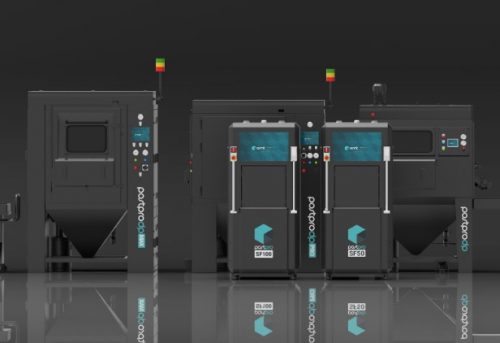Tech firm set for growth as it unlocks potential of 3D printing

A Sheffield-based technology firm which is making 3D printing for high-volume manufacturing viable for the first time, is set to more than triple its turnover this year.
Additive Manufacturing Technologies (AMT), has invented technology that automates the finishing of 3D printed parts to enable them to be utilised in end use part applications, from household appliances to electric vehicles and trainers.
The business, while only six years old, now employs over 100 people in the UK, EU, USA and Asia, and is on course to generate revenues of $15m-$20m this year while achieving profitability.
The finishing (post processing) of 3D printed parts was previously done manually, which made scaling up to high-volume manufacturing unviable and has largely limited 3D printing to prototyping.
AMT’s proprietary technology tackles this challenge by bringing to market products and solutions to automate the process.
Founded in 2017, AMT turned to Shawbrook to secure a £3m venture debt loan to support further expansion in its production capabilities and deliver its large and expanding order book and increasing demand.
Joseph Crabtree, CEO and founder of AMT, said: “The promise that 3D printing could revolutionise the manufacturing process to deliver huge time and cost savings has been an exciting prospect for years.
“But it has only become a viable alternative to injection moulding and CNC machining very recently thanks to automated post-processing.”
Manish Dev, COO of the business, said: “Demand for our technology has rocketed and the funding from Shawbrook will give us the flexibility to catalyse production and service the demand from manufacturers looking to embrace the efficiencies that 3D printing offers.”
Jack Bates, venture debt associate director at Shawbrook, added: “AMT’s remarkable technology is opening new doors for manufacturing.
“It can be used to create automated production and packaging lines to help firms tackle skills shortage and ramp-up production.
“And vitally, it can enable more local and domestic manufacturing that will ease supply chain pressures.”








